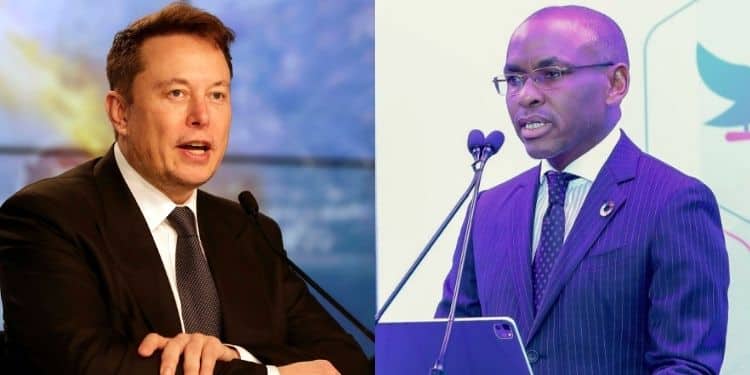Safaricom’s monopoly over Kenya’s internet market is facing an unprecedented challenge as Starlink, Elon Musk’s satellite-based internet service, edges closer to entering the Kenyan market.
The simmering battle over internet access costs has now escalated to the courts, with lobby group Kituo cha Sheria suing Safaricom, the Communications Authority of Kenya (CA), and the Competition Authority of Kenya.
Kituo claims that Safaricom is deliberately trying to lock Starlink out of the market to preserve its dominance and maintain exorbitant fees for internet users.

Safaricom CEO Peter Ndegwa. Photo: Safaricom Source: Facebook
While Safaricom charges up to Sh 6000 for 50GB of internet, Starlink promises faster internet speeds for a significantly lower fee of Sh 1800.
Safaricom, in its defence, had written to the CA, urging the authority to force SpaceX, Starlink’s parent company, to partner with local internet providers, a move seen as a bid to protect its interests.
However, Kituo, led by Dr. Annette Mbogoh, argues that this would prevent Kenyans from accessing affordable, high-speed internet.
As the case unfolds, the courts are now tasked with determining whether Safaricom’s actions infringe on Kenyans’ socio-economic rights to affordable internet access.

Safaricom CEO Peter Ndegwa. Source: Facebook
Kituo’s legal team, representing the public interest, emphasized the importance of allowing Starlink to operate independently in Kenya, potentially ending Safaricom’s reign of high prices.
As Kenyans eagerly await the court’s ruling, the entry of Starlink appears increasingly inevitable, signaling a potential shift in the country’s internet landscape and possibly sparking the long-awaited relief from high fees imposed by Safaricom.



